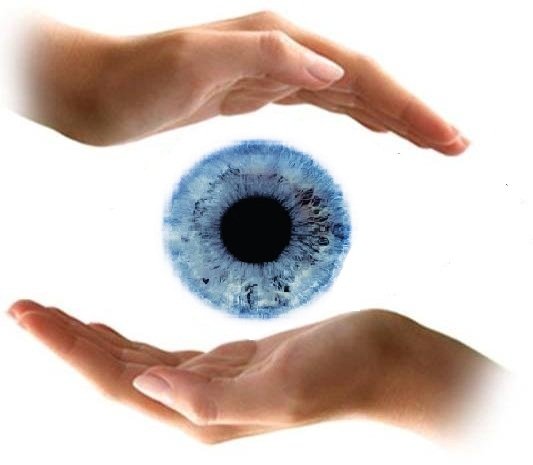Andalusia Pediatrics: Exceptional Look after Children's Health Demands
Andalusia Pediatrics: Exceptional Look after Children's Health Demands
Blog Article
Is Refractive Surgery Right for You? Elements to Take Into Consideration for Better Eyecare
In the realm of eye care, the decision to undergo refractive surgery is a crucial one that requires thoughtful consideration. From the complexities of one's ocular health and wellness to the ins and outs of daily practices and personal expectations, each aspect holds importance in the wider landscape of refractive surgical procedure candidacy.
Eye Health And Wellness Assessment
When taking into consideration refractive surgery, a comprehensive eye health assessment is essential to evaluate the viability of the procedure for every individual. cardiologist andalusia. This evaluation involves a collection of examinations and examinations carried out by an eye care professional to establish the general health of the eyes, the visibility of any type of underlying problems, and the security of the refractive mistake
During the analysis, numerous variables are considered, such as the person's case history, present eye prescription, corneal thickness, pupil dimension, and tear movie quality. These assessments assist to identify any type of contraindications to refractive surgery, such as corneal problems, cataracts, or neglected eye infections. Additionally, the analysis assists to take care of client assumptions regarding the possible outcomes of the surgical procedure based on their special eye qualities.
Eventually, the eye wellness assessment is crucial in ensuring the safety and efficiency of refractive surgical treatment, as it gives important understandings right into the person's eye health status and helps identify the most appropriate therapy alternatives for achieving optimal visual outcomes. (andalusia pediatrics)
Way Of Life Evaluation
A detailed way of living assessment is important in identifying the viability of refractive surgery for a person's visual improvement requirements. Way of life elements such as line of work, pastimes, and day-to-day activities play an essential function in the decision-making procedure pertaining to refractive surgical procedure.
In addition, way of living practices such as sporting activities engagement, exterior tasks, or even skincare regimens can influence the healing procedure and general success of refractive surgery. By conducting a detailed way of living assessment, eye care professionals can customize their recommendations and treatment strategies to satisfy the distinct needs of each patient, inevitably leading to enhanced aesthetic results and contentment.
Assumption Positioning

Clients view publisher site require to comprehend that while several individuals accomplish 20/20 vision or far better complying with refractive surgical procedure, some may still call for glasses for certain tasks like analysis or driving at night. Managing these assumptions helps stop disappointment and discontentment post-surgery, leading to an extra favorable overall experience for the individual.
Danger Evaluation

Variables that may raise the risk of difficulties include age, specific clinical conditions like autoimmune illness, unstable vision prescription, thin corneas, and impractical individual expectations. Furthermore, picking a skilled and experienced cosmetic surgeon, adhering to pre and post-operative care instructions faithfully, and disclosing any appropriate clinical background can help reduce dangers.
To reduce the chance of complications, ophthalmologists carry out complete pre-operative evaluations to identify any contraindications to surgical treatment. They likewise talk about the prospective dangers and advantages with individuals throughout the appointment procedure. By participating in open communication and shared decision-making, both the patient and the eye doctor can function with each other to establish if refractive surgery is the right choice based upon private danger profiles and desired end results.
Assessment Importance
Thinking about the crucial role of educated decision-making in examining risks and potential difficulties in refractive surgical procedure, the appointment process holds significant significance in assisting clients towards optimal end results. Throughout the consultation, the ophthalmologist evaluates the person's eye wellness, refractive errors, and more tips here overall viability for surgical procedure. This first evaluation is essential in determining one of the most appropriate procedure for each and every individual, considering variables such as corneal density, pupil dimension, and existing eye conditions.
In addition, the examination functions as a possibility for individuals to review their expectations, problems, and any type of questions they might have concerning the surgical procedure. Clear communication in between the individual and the surgeon is important to make sure realistic assumptions and a comprehensive understanding of the possible risks and benefits entailed.
Additionally, the appointment allows the specialist to explain the different medical options offered, their particular end results, and the post-operative care needed. This thorough discussion equips people to make well-informed decisions concerning their eye care, bring about better fulfillment and end results post-surgery.
Conclusion
Finally, people taking into consideration refractive surgery ought to undergo a detailed eye wellness evaluation, evaluate their way of life practices, straighten their assumptions with possible end results, evaluate the connected threats, and focus on consultations with eye care professionals. These elements play a vital duty in establishing the viability of refractive surgical procedure for every person, making sure ideal results and complete satisfaction with the treatment.
People taking into consideration refractive surgery typically have high expectations regarding the end results, expecting best vision without the requirement for glasses or get in touch with lenses. While refractive surgery can significantly improve vision and reduce dependence on aesthetic aids, it is vital for people to recognize that outcomes may vary based on specific aspects such as the degree of refractive mistake, corneal density, and general eye wellness.
By involving in open communication and shared decision-making, both the eye doctor and the client can function with each other to identify if refractive surgical procedure is the appropriate option hop over to these guys based on private danger profiles and wanted results.
Considering the critical duty of notified decision-making in examining risks and possible problems in refractive surgical procedure, the examination process holds substantial significance in leading clients towards ideal end results. During the appointment, the ophthalmologist reviews the client's eye wellness, refractive errors, and general suitability for surgical procedure.
Report this page